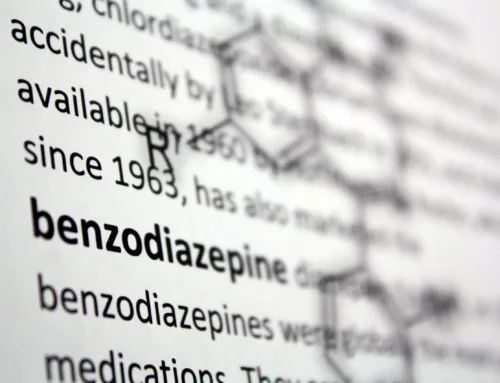Common Signs and Symptoms of Benzodiazepine Abuse
Also sometimes referred to as “mini tranquilizers”, benzodiazepines are a class of psychoactive drugs that are designed to calm the nervous system.
Because of their relaxing, sedative effect, benzodiazepines are typically prescribed to individuals struggling with—insomnia, seizures, anxiety disorders, and other hyper-active conditions and disorders.
In recent decades, the risks associated with prolonged use of this drug have become more widely known, particularly surrounding how high the potential for dependence and addiction is.
Today we’re going to discuss what the most common signs and symptoms of benzodiazepine abuse are. If you suspect a loved one may have developed a substance use disorder with their benzodiazepine prescription, this article will better help you to determine it.
What are benzodiazepines?
Benzodiazepines are a type of prescription drug that works as a depressant, meaning, it causes a sedative-like effect on the individual. Decreasing the amount of activity in your nervous system, allows the individual to relax, rest, to sleep — all relaxed states they might struggle to experience on their own because of a condition.
Sleep disorders, anxiety disorders, chronic muscle spasms and seizure disorders are what benzodiazepines are primarily prescribed for. In certain situations, they might be administered to individuals going through withdrawals to help curb agitation, anxiety and mental distress.
There are several categories of benzodiazepines, and the version prescribed to a person will depend on their situation and unique needs. Some types of benzos are interchangeable, but there’s usually one form that’s better suited for someone than the others.
Benzodiazepine abuse symptoms
Like other pharmaceutical drugs, benzodiazepines have a potential for abuse and addiction, and as such, should not be consumed if not prescribed by your physician.
Short-term use doesn’t typically result in a mental or chemical dependence, but for individuals who take benzodiazepines for an extended amount of time (longer than a couple of months), dependence is more likely to occur.
Stopping consumption suddenly can result in withdrawal symptoms manifesting which can range anywhere from mild to severe, depending on the dose and frequency of the prescription.
When left untreated, a substance use disorder can quickly turn into an addiction that requires professional support and treatment to be overcome. The effects of addiction rarely affect a single area of our lives, and individuals struggling with benzodiazepine abuse often experience a ripple effect of various challenges.
The most common signs and symptoms of benzodiazepine abuse include:
- Impaired memory and judgment
- Changes in behavior (such as slurred speech or poor coordination)
- Neglect of personal responsibilities
- Sudden financial problems
- Difficulty maintaining healthy relationships
- Loss of interest in relationships and hobbies
- Lack of personal hygiene care
- Difficulty falling asleep or sleeping too much
- Withdrawal symptoms when not under the influence of the drug
It’s important to recognize that signs of benzodiazepine addiction or abuse can vary from the signs that would be exhibited if someone overdosed.
A few of the most common symptoms of a drug overdose include:
- Being unresponsive (either unconscious or seeming lethargic if conscious)
- Slowed or difficulty breathing
- Erratic pulse
- Being unable to speak
- Cold or pale skin
If you suspect a benzodiazepine overdose has occurred, call 911 immediately.
Begin recovery today
Freedom Detox is a premier detoxification treatment center that specializes in helping men and women from various walks of life begin their path to sobriety.
While some think that detoxing at home might be better because it’s a familiar environment and loved ones are near, detoxing from drugs or alcohol can be a violent shock to the body.
Depending on the drug, how long the person has been abusing it and the severity of addiction, the symptoms can range from mildly uncomfortable to life-threatening. Detoxification is a necessary, but potentially dangerous phase of recovery that should only be undergone within the proper medical environment.
To speak with one of our intake specialists and learn more about how we can help you begin recovery today, send us a message or give us a call today.





